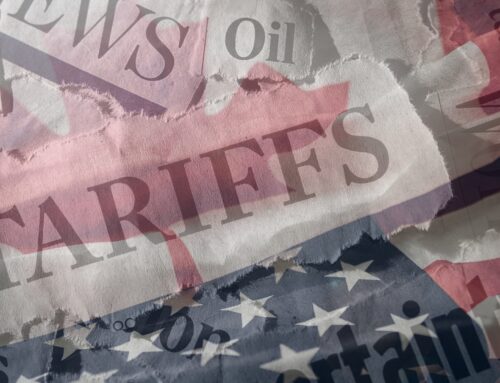Canada’s 2024 Carbon Tax Increase: A Guide for SMEs
The 2024 carbon tax increase comes with its challenges, particularly for business leaders. With added energy expenses and a decrease in rebates, the change coming on April 1st is top of mind for many so we’ve created this guide to help SMEs to navigate it.
The federal government plans to reduce the rebate for small and medium-sized businesses by roughly $500 million a year. This decrease would cause Canadian small businesses to lose out on a potential $3.4 billion between 2024 and 2029.
What is the Carbon Rebate Program?
The Carbon Rebate Program, formally known as the Climate Action Incentive Payment, and informally known as carbon tax, is a tax applied to heating fuels, including natural gas, to put a cost on greenhouse gas emissions. The tax revenue is then rebated to Canadians (after processing expenses). The purpose of this program—Bill C14 in Canada—is to encourage energy efficiency for businesses and Canadian households.
How Much is the Carbon Tax Rebate for Small Business Owners?
While consumers are receiving a bulk share of the rebate amounts—with an increased reallocation going to rural households and Indigenous governments—the carbon tax rebate for businesses has been decreased from 9% to 5%. Currently, SMEs contribute to approximately 40% of the total tax revenue.
According to the Canadian Federation of Independent Business CFIB, only 0.17% of the promised carbon tax rebate has been returned to small and medium-sized businesses since 2019.
SMEs are currently owed an estimated $2.5 billion in carbon tax revenues. That translates to approximately $6,990 per business in Saskatchewan, who have a smaller market, lots of heating required for cold winters, and energy-intensive industries. Other provinces part of the federal program (B.C., for example, has a provincially designated program that meets the federal requirements), include the following:
- Alberta owed $4,095 per business
- Manitoba owed $3,287 per business
- Ontario owed $2,637 per business
- Atlantic provinces owed between $631 (P.E.I) and $1,058 (Newfoundland and Labrador) per business, which is less because they didn’t join the federal program until 2023.
The federal government has promised that households will receive more money through this program than the end cost; although, now an impartial Parliamentary Budget Officer has concluded there will be a net loss when all economic factors are taken into consideration.
What is the Effect of Carbon Tax on Businesses?
There are many outstanding implications of the carbon tax increase for Canadian SMEs. The reduction in rebate amount, along with the carbon tax increase on April 1st, results in an extra expense that small and medium-sized business owners will have to shoulder.
To stay afloat, the majority of business owners say they will have to cut salaries or pass some of the added cost onto consumers, who are already struggling with an inflationary environment. This could be detrimental for some SMEs if they can’t keep their pricing competitive with international organizations or larger enterprises.
How to Increase Energy Efficiency in SMEs and Navigate the Carbon Tax Rate Increase
The added pressure of the carbon tax increase is encouraging energy efficiency for businesses to reduce carbon emissions. Whether this added pressure is fair is up to the individual, and they may wish to sign the petition that opposes the new measures for 2024.
Below are some options for SMEs to reduce the impact of the carbon tax increase and incorporate energy efficiency into their business practices.
Canadian Business Grants for Energy Efficiency
There are government grants available provincially and across Canada. Finding the right business grants for energy efficiency depends on your industry and eligibility.
Save on Energy offers incentives for Ontario small businesses of up to $3,000 for lighting equipment and $2,500 for non-lighting equipment. They also offer a variety of other services to help assess and streamline small businesses’ energy efficiency.
Alberta Business Grants LTD has a database of grants to help SMEs in Alberta, and across the country, cover the costs of energy-efficient installations and job development in the field.
Fortis BC offers rebates for projects and businesses of all sizes.
SaskEnergy has rebates and programs for commercial projects such as heating upgrades and homebuilding.
Energy efficiency benefits buildings and industry through cost reduction, emission reduction, and improved performance and asset value.
Energy management resources for industry
Energy benchmarking for industry
ISO 50001 Energy Management Systems Standard
Energy Management Resources for Industry
Conducting an energy audit
Energy benchmarking for industry
ISO 50001 Energy Management Systems Standard
Feeling overwhelmed by the carbon tax increase?
Facing the challenges associated with a carbon tax increase on April 1st can be daunting for a small business owner. Being part of a peer advisory group allows for collaborative problem-solving, where members can brainstorm and develop creative solutions to common challenges. This collaborative approach can lead to more effective and efficient strategies than a business owner might achieve on their own.
Explore if joining a peer advisory group, such as our TEC Small Business program, is right for you.




